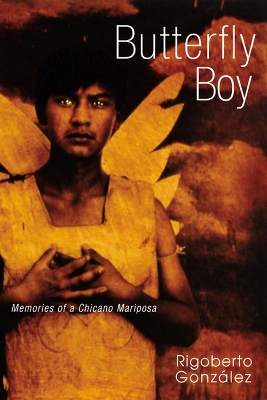Reviewed by gmcgregor on
Gonzalez centers his narrative around a bus trip he takes with his father to his maternal grandparents' village in Mexico. Gonzalez, at this time a college student, has just had another ugly, violent fight with his lover and reflects on this relationship as well as his life growing up, particularly his conflicted relationship with the man he's traveling with. It's a harsh life he's led: the family's poverty keeps them rootless, chasing unskilled labor jobs, constantly living with relatives to keep a roof over their heads. Their time living with his paternal grandparents is especially bad: his grandfather is physically abusive and rules the home through fear. Gonzalez knows fairly early on that he's gay, and while his sexuality is mostly a topic avoided by his family, his mother encourages him to hide it from his father, so he lives in a constant state of shame and suppression.
Gonzalez's writing is really beautiful, even as he describes brutal violence and searing embarrassment. He mostly avoids telling the reader who people are (himself, his father, his mother) in favor of showing who they are through their own words and actions. When, early in the book, Gonzalez gives his father money for two first-class bus tickets and the older man returns with two coach tickets, overriding his son's decision about how to spend his own money, we can tell what kind of person he is. By the time Gonzalez gets to the end of his story, we understand how the ways he's been taught to hate himself leave him vulnerable to a relationship in which he's treated with contempt. This would probably be a very difficult book to read for people with a history of domestic violence, but I'd recommend it for other readers. Regardless of your background, there's a story here that's very worth reading.
Reading updates
- Started reading
- 5 August, 2017: Finished reading
- 5 August, 2017: Reviewed
